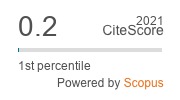Analysing the Way FDI Inflow Impacts Indian Stock Market: An Empirical Study
DOI:
https://doi.org/10.17762/msea.v71i3.2415Abstract
In 1991, FDI was introduced as part of Foreign Exchange Management (FEMA). Given that similar measures had already been taken by other developing economies, it was decided to implement these measures in India. In both industrialized and emerging countries, the foreign investment inflow has become a striking indicator of economic growth. Since the emergence and integration of the global equities market, emerging economies have noticed shifts in the mix of capital flows into their economies. Secondary data of 22 years (2000-01 to 2021-22) was gathered from Database of Department for Promotion of Industry Internal Trade & respective official website of NSE & BSE. The effect of foreign direct investment (FDI) on Indian stock market return (BSE SENSEX and NSE Nifty 50) has been examined using descriptive statistics binary linear regression and correlation analysis. The Indian government and executionary authorities have been urged to increase their efforts to attract foreign direct investment (FDI) to strengthen the economic system of India.




